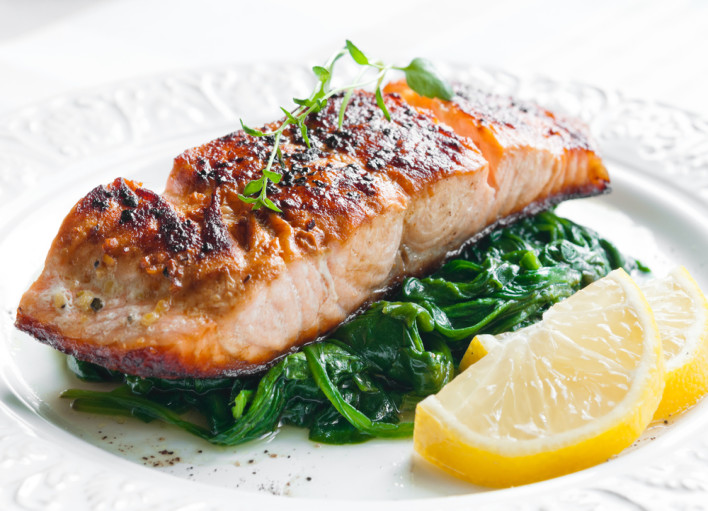Skin Science
Why any skin cancer prevention diet should feature vitamin A
You and the sun probably have a good relationship, all things considered. True, too much 1:1 personal time can leave your skin red and tender, but add a little sunscreen, a layer of dark long-sleeved clothing and the occasional break in a shady area, and you can avoid the worst of sunburns while still soaking in all that vitamin D goodness.
However, unprotected sun exposure can also cause more serious conditions — which is why skin cancer prevention is so important. Sun safety is a great start, but have you considered that you can protect your skin from the inside out with foods that may prevent skin cancer?
Research shows that eating a may help protect against certain forms of skin cancer, including squamous cell carcinoma. Here's how to put skin cancer prevention on a plate.
Diana Kelly Levey October, 27, 2020
Runner, dancer, baker, adopted dog mom, wisecracker (or jokester)

Which foods contain vitamin A?
Vitamin A comes in two forms: preformed vitamin A (what you might know as retinol or retinyl ester) and provitamin A carotenoids (including beta-carotene, which gives orange foods their color). Preformed vitamin A is found in animal sources including fish, meat (such as liver) and dairy products, while provitamin A is found in plant foods. A review of studies found that retinol was associated with a reduced risk of melanoma, the most serious form of skin cancer.
You'll find vitamin A in foods like carrots, broccoli, mangoes, watermelon, sweet potatoes, apricots, cantaloupe and spinach. Not only are these fruits and veggies sources of vitamins and minerals, but they are foods that can prevent skin cancer — or at least play a role.
It's easier than you think to add more vitamin A-rich foods to meals and snacks. Try these ideas:
Bring the greens. Make a spinach salad topped with carrots.
Make it sweet. Have sweet potatoes as a side at dinner.
Get fresh. Enjoy fresh sliced cantaloupe at breakfast with yogurt and fortified breakfast cereal. Or, pack an apricot for a quick, juicy afternoon snack.
Drink up. Add mangoes or watermelon to smoothies or make refreshing juice coolers.
Foods that may prevent skin cancer
As wonderful as vitamin A is, it can't do all the heavy lifting on its own. Gearing your diet toward preventing skin cancer bring together a whole range of nutrients.
If you're stuck on where to start, plan your next meal around one of these antioxidant-rich and inflammation-reducing foods:
Omega-3 Fatty Acids: Found in walnuts and fatty fish like salmon, these nutrients may help reduce the risk of developing non-melanoma skin cancer.
Berries: These fruits help protect the body against free radicals, which cause cell damage that can lead to a number of cancers, including skin cancer. Blueberries in particular are very high in polyphenols, a type of antioxidant that may also help lower cancer risk.
Tomatoes: Do you instinctively reach for the brightest, reddest tomato at the grocery store? The source of that vibrant red color, lycopene, could protect the body from certain skin cancers — and, surprisingly enough, may also prevent redness in the skin after UV exposure.
Pumpkin: This orange-hued vegetable is chock-full of carotenoids and may help protect your skin from sun damage.
Regardless of which vitamin A-packed foods that may prevent skin cancer you decide to pack on your plate, following a balanced diet and maintaining a healthy weight is one of the best things you can do to stay healthy.
Now, go whip up a healthy smoothie with some of the delicious foods that can help you protect your skin.

